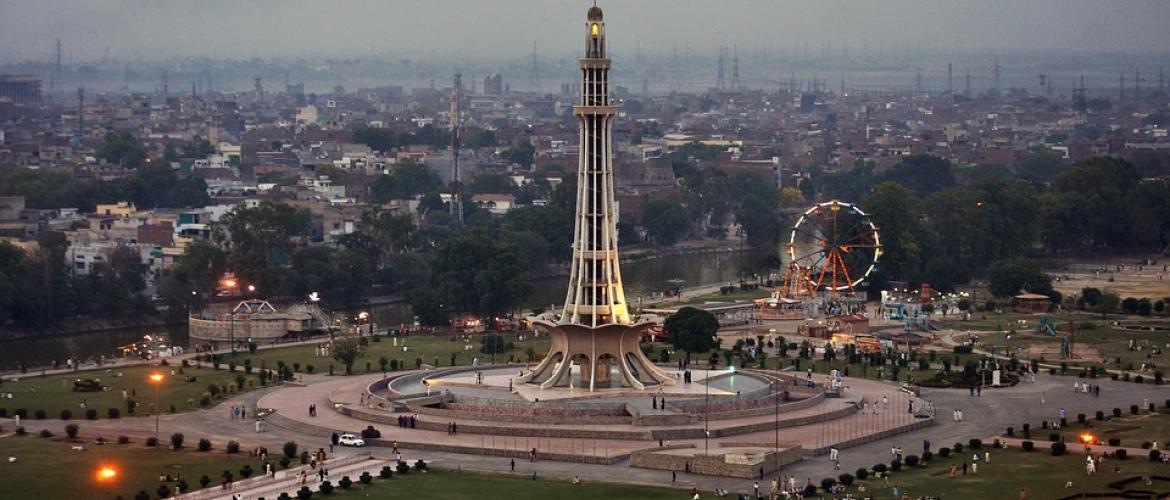Pakistan to get Saudi oil on deferred payments
May 27, 2019 | Expert Insights

Background
Saudi Arabia is diversifying its global economic linkages with China, Central Asia and South-East Asia. It increasingly perceives China – Pakistan Economic Corridor (CPEC) as a great opportunity in the emerging Southwest Asian geo-economic setting, which must be fully harnessed by investing in the future of Pakistan as its pivot.
Pakistan has been called "Saudi Arabia's closest Muslim ally. The country provides security support to Saudi in return for economic support. Pakistan has benefited enormously from Saudi Arabia generous financial aid, the supply of oil on a deferred payment basis and aid during crises. Saudi has also found a receptive audience in Pakistan. Economic linkages such as funding and oil deals allow the embedding of their influence, as well as their ideology.
Pakistan has taken 21 loans from IMF out of which 12 are bailouts. In 60 years, the country has borrowed $27 billion as per the current value of Special Drawing Right (SDR). Pakistan has also received a total of USD 9.1 billion in financial aid packages from friendly countries like China, Saudi Arabia and the UAE during the current fiscal year.
Analysis
Prime Minister Imran Khan's Advisor on Finance stated that cash-strapped Pakistan will start getting the much-anticipated Saudi Arabian oil on deferred payments from July. "The Kingdom will supply USD 275 million oil to Pakistan on monthly basis from July," Shaikh said. He added that the facility will "strengthen Pakistan's balance of payments position", and thanked Saudi Crown Prince Mohammed bin Salman for "his continuous support for the people of Pakistan".
Last year, Saudi Arabia agreed to provide a bailout package of USD 6 billion to help resuscitate Pakistan's worsening economy. In October 2018, the Kingdom had also agreed to establish a credit line worth USD 3 billion for the sale of petroleum products on credit for three years to Islamabad and to give USD 3 billion in Pakistan's foreign currency reserves for a year.
Reacting to Riyadh's move, Minister for Planning, Development and Reforms, Khusro Bakhtiar said the deferred payment facility "will reduce the pressure created by the outflow of foreign exchange".
In the meantime, the Pakistani government has removed Finance Secretary Younus Dagha due to alleged differences with Hafeez Sheikh during negotiations with International Monetary Fund (IMF). Cabinet Secretary Naveed Kamran Baloch has been appointed as the new finance secretary while Maroof Afzal has been appointed the new cabinet secretary. Prime minister Imran Khan’s government reached a preliminary agreement on a three-year $6bn bailout with the IMF this month that comes with the requirement to implement harsh structural reforms.
The government of Pakistan fell short of broadening the tax base or privatizing state-owned companies as IMF hoped. In addition, the higher oil prices and growth demanded for more imports, widened current account gap, reserves began to slide & the currency was devalued multiple times. Due to this, it has failed to meet the conditions attached to its previous IMF loans. According to IMF, Pakistan’s growth, which hit 5.8 percent in the 12 months to end of June 2018, will slow to 4 percent in 2019 and about 3 percent in the medium term.
Khan’s government has taken measures to tackle the fiscal deficit by increasing exports and attracting investments. Besides tax reforms, the government has made reforms to bring ease of doing business. Citing immense potential for religious tourism, Pakistan has initiated new programs.
Assessment
Our assessment is that Saudi Arabia is working to strengthen its position in the region following a rise in the hostility between the US and Iran. We feel that the payment deferral is largely to keep Pakistan in the Saudi Arabia-US camp. If tensions spiral out of control, Saudi Arabia is likely to lean on Pakistan for security support. Also, the increasing Sunni fundamentalism, bordering on Wahhabism makes it an ideological ally of Saudi Arabia and a foe of Shia Iran
It can be noted that Saudi Arabia announced $20 billion in infrastructure and energy investments in Pakistan’s impoverished Balochistan region which lies along the 565-mile border with Iran. Saudi has also been accused of triggering unrest in the area which is home to Iranian Sunni anti-regime militants. Saudi Arabia is also interested in curbing Iranian influence in Afghanistan and needs Pakistan to contain Tehran’s ability to influence events after the American withdrawal through its Tajik and Hazara allies.
We believe that a strong relationship with Riyadh is also a means of balancing the power and preventing India from gaining the upper hand in the Middle East.








Comments